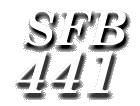|
Assunta Urso
Outline
This synchronically and typologically orientated research project studies and compares the lexical motivation of parts of the lexicons of French, Italian and German. The innovation relative to traditional motivational research is the systematic specification of the motivational relations between lexical units not only according to formal, but also into semantic-cognitive categories (e.g. metaphorical similarity, contiguity, taxonomic relations etc.).
The sample of lexical units that will be studied is chosen according to the criteria of centrality and frequency. Its motivation is to be examined using speaker judgements. For each of the three languages we will study the most frequent lexical units as well as a sample of less frequent lexical units. The resulting motivational characteristics of over 2000 lexical units will be published in TUSNELDA as a "Comparative Motivational Dictionary".
With such a description we aim on the one hand to establish motivational profiles of the three languages, and on the other hand to factorise the motivational relations into formal as well as semantic-cognitive types. The most significant theoretical question is whether all three languages have the same "cognitive preferences". We additionally plan to develop hypotheses on which combinations of formal and semantic-cognitive motivational relations are possible (and impossible).
Si vous êtes de langue maternelle française, nous vous invitons à participer à notre enquête actuelle!
Se siete di madrelingua italiana, vi invitiamo a partecipare al nostro esperimento attuale!
Wiltrud Mihatsch and Angela Dorn, last updated: 5-12-2008, by Verena Rube |
